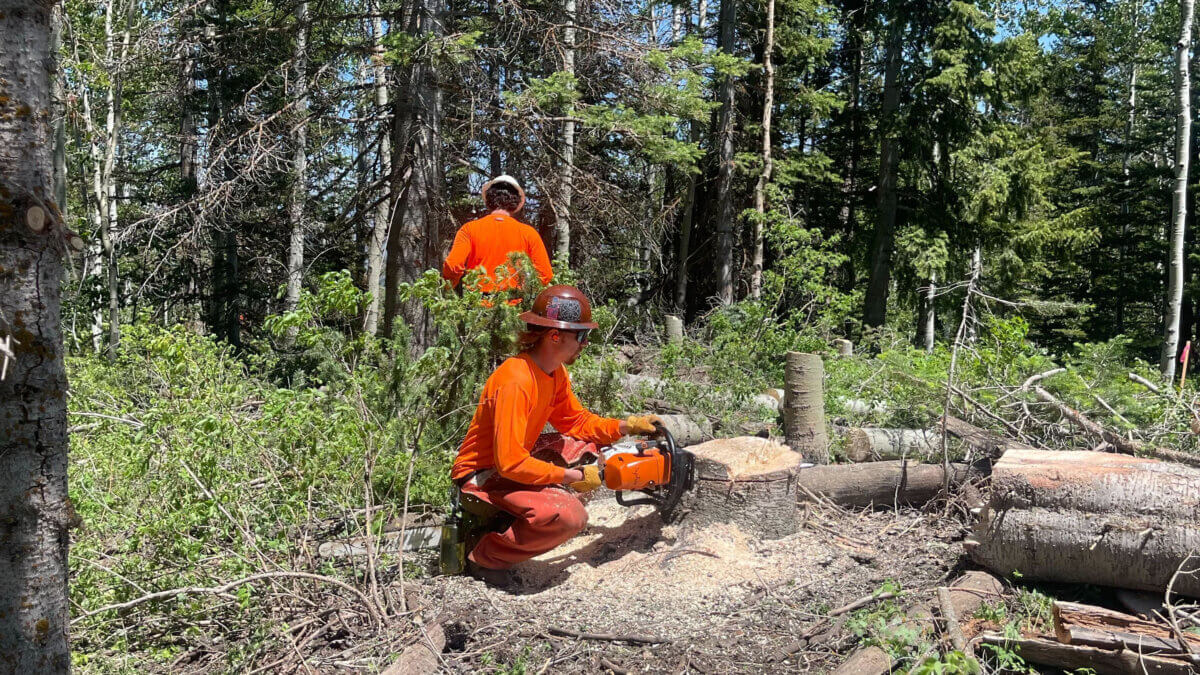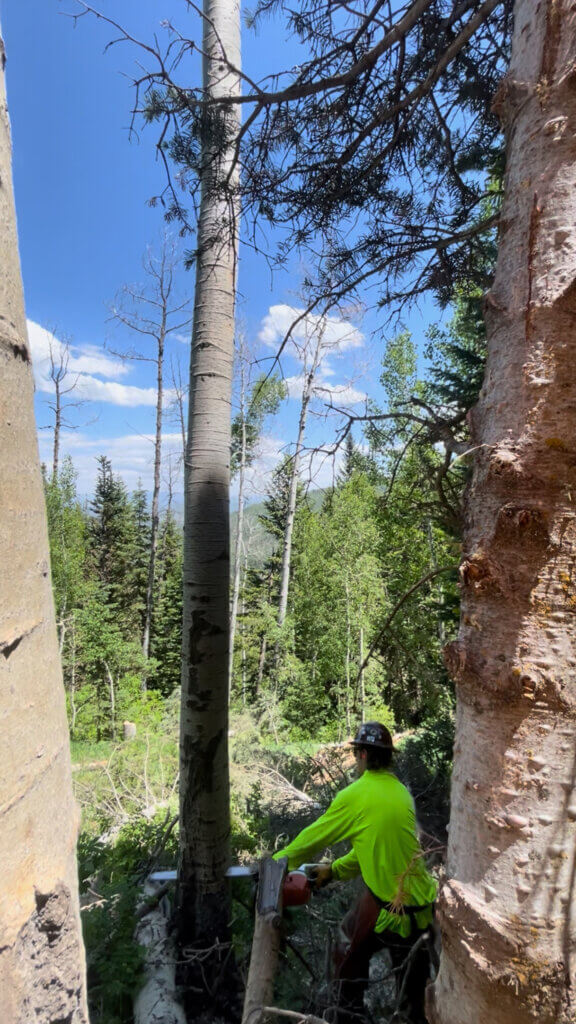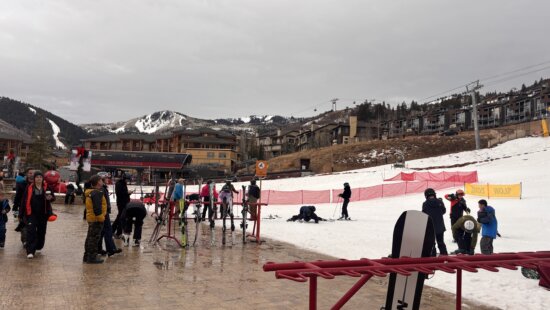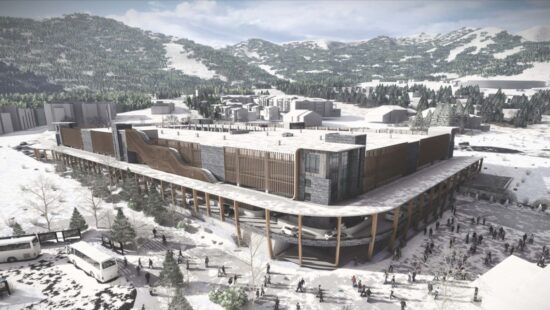Community
Park City Mountain Bike Patrol and Trail Crew file to unionize, seek pay equity with winter roles

A member of Park City Mountain's trail crew uses a chainsaw to cut down a stump while felling trees on the mountain. Photo: PCPSPA
PARK CITY, Utah — Summer employees at Park City Mountain are seeking to form a union, joining a growing wave of labor organization efforts in the outdoor recreation industry. A petition was filed last week by the resort’s bike patrol and winter maintenance trail crew—many of whom also work as ski patrollers in the winter—aiming to establish their own union separate from their cold-season counterparts.
The move follows a high-profile contract battle and strike by the Park City Professional Ski Patrol Association (PCPSPA) this past winter, which resulted in a new agreement with Vail Resorts. Like the winter ski patrol, the summer groups are seeking representation by the Communications Workers of America.
Joe Kim, a business manager for PCPSPA and a member of the resort’s trail crew, said the group is hoping to gain voluntary recognition from the resort, which would allow them to skip a formal vote and begin contract negotiations. That request was submitted on August 1. As of Tuesday afternoon, however, they had not received a response from Park City Mountain. Kim said the group is optimistic the National Labor Relations Board will issue a determination by the end of the week.
According to Kim, the core of the group’s argument is wage alignment.
“We have a livable wage in the winter after the successful negotiations last season,” he said. “And we are using similar skill sets. So we are looking for a wage that is more in line with the skill sets we are employing every day.”

In some cases, Kim noted, summer employees are now earning less than they did prior to the new winter contract, even while performing highly technical and physically demanding work. Trail crew members are responsible for a range of duties critical to the resort’s infrastructure—rerouting and reclaiming overgrown trails, maintaining terrain for safety, and preparing ski runs for winter.
Last year, a crew of 18 helped cut the lift line for the new gondola at Park City Mountain, felling old-growth trees in what Kim described as “a large-scale project” that directly impacts Park City’s ability to install a new key piece of infrastructure.
While bike haul operations run only about three months each summer, employees are required to hold medical certifications and participate in lift evacuation drills.
Summer patrollers, meanwhile, respond to injuries and incidents for all of Park City Mountain Resorts summer operations, from mountain biking accidents, to injuries at the alpine slide and other activities, to attending to other mountain employees who need assistance or get hurt.
In response to the petition, a spokesperson for Park City Mountain confirmed the resort is aware of the union effort and will engage with the process.
“We believe a direct connection to our employees fosters the strongest working relationship between our employees and their resort leaders,” the spokesperson said in a statement. “But we respect their right to file this petition and are engaging in this process.”
The resort also clarified that while it is proud to offer summer roles to ski patrollers, the summer operation is less complex than the winter season. Employees who perform lift evacuations are already paid additional compensation for those duties, the spokesperson said.
Park City Mountain emphasized that its summer bike haul and trail maintenance operations are not part of a full-scale bike park business and are not currently profitable. Still, the resort said it is glad to provide those services for the Park City community and visitors.
Whether the union will move forward now hinges on the resort’s response to the request for voluntary recognition—or a potential vote overseen by the labor board.


















